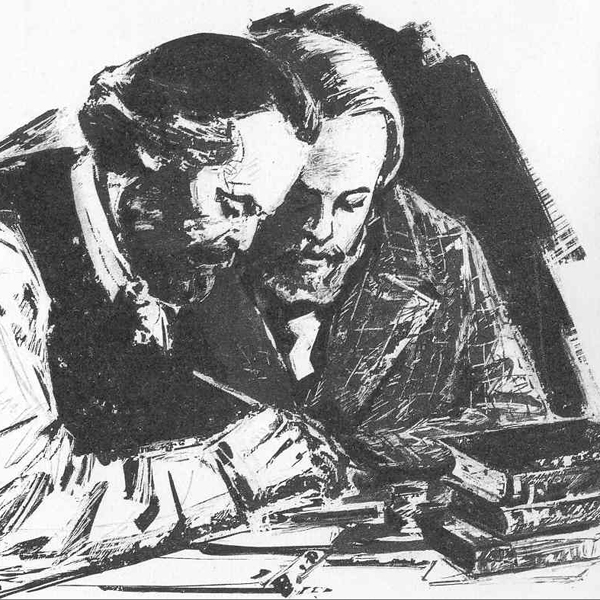
Rosa, behind bars.
Come watch a film about radical Second International intellectual Rosa Luxemburg.
It's a potluck, so bring food. Eat food. Talk about the movie, Rosa, the latest Platypus Review, the Sexual Liberation Event. Check out the Mess Hall space. Have a good time.
(This) Friday the 23rd, at the Mess hall from 7:30- 10:30.
Friday the 28th of August at 5-7pm in the SAIC Michigan Building, room # 501.
We will be reading and discussing: U.S. Labor in the crisis: resistance or retreat by Lee Sustar
| The Colbert Report | Mon - Thurs 11:30pm / 10:30c | |||
| Andy Stern | ||||
|
||||
Our weekly Coffee Breaks are a great way to meet Platypus members and fellow travelers, and to get to know the Platypus project. It’s an opportunity to discuss issues raised in the latest issue of the Platypus Review, consider the state of the Left, and just hang out with people who have similar political interests.
Loyola: Thursdays @ 4 at Ramber Room Cafeteria | CFSU | 1125 Loyola Ave
Contact //luc@platypus1917.org
UIC: Thursdays @ 3:30 at Port Center Cafe | University Hall | 601 S Morgan St
Contact //uic@platypus1917.org
U of Chicago: Tuesdays @ 4:30 at Harper Cafe | 3rd Floor, Harper Memorial Library | 1116 E 59th St
Contact //uofc@platypus1917.org
SAIC: Wednesdays @ 4:30 at Cafe Bacci | 20 N Michigan Ave
Contact //saic@platypus1917.org
Platypus Marxist reading group
June 28 - August 16
Sundays 1-4PM at:
School of the Art Institute of Chicago
112 S. Michigan Ave.
room 707
Radical bourgeois philosophy: Kant-Hegel-Nietzsche
We will address the greater context for Marx and Marxism through the issue of bourgeois radicalism in philosophy in the 18th and 19th Centuries. Discussion will emerge by working through the development from Kant and Hegel to Nietzsche, but also by reference to the Rousseauian aftermath, and the emergence of the modern society of capital, as registered by liberals such as Adam Smith and Benjamin Constant.
"The principle of freedom and its corollary, 'perfectibility,' . . . suggest that the possibilities for being human are both multiple and, literally, endless. . . . Contemporaries like Kant well understood the novelty and radical implications of Rousseau's new principle of freedom [and] appreciated his unusual stress on history as the site where the true nature of our species is simultaneously realized and perverted, revealed and distorted. A new way of thinking about the human condition had appeared. . . . As Hegel put it, 'The principle of freedom dawned on the world in Rousseau, and gave infinite strength to man, who thus apprehended himself as infinite.' "
-- James Miller (author of The Passion of Michel Foucault, 2000), Introduction to Rousseau, Discourse on the Origin of Inequality (Hackett, 1992)
Weekly reading schedule:
6/28/09
1.) Robert Pippin, "On Critical Theory" [HTML Critical Inquiry 2003]; and Rousseau, Discourse on the Origin of Inequality
7/5/09
2.) Rousseau, selection from The Social Contract
7/12/09
3.) Adam Smith, selections from The Wealth of Nations
Volume I
Introduction and Plan of the Work
Book I: Of the Causes of Improvement...
I.1. Of the Division of Labor
I.2. Of the Principle which gives Occasion to the Division of Labour
I.3. That the Division of Labour is Limited by the Extent of the Market
I.4. Of the Origin and Use of Money
I.6. Of the Component Parts of the Price of Commodities
I.7. Of the Natural and Market Price of Commodities
I.8. Of the Wages of Labour
I.9. Of the Profits of Stock
Book III: Of the different Progress of Opulence in different Nations
III.1. Of the Natural Progress of Opulence
III.2. Of the Discouragement of Agriculture in the Ancient State of Europe after the Fall of the Roman Empire
III.3. Of the Rise and Progress of Cities and Towns, after the Fall of the Roman Empire
III.4. How the Commerce of the Towns Contributed to the Improvement of the Country
Volume II
IV.7. Of Colonies
Book V: Of the Revenue of the Sovereign or Commonwealth
V.1. Of the Expences of the Sovereign or Commonwealth
7/19/09
4.) Benjamin Constant, "The Liberty of the Ancients Compared with that of the Moderns;" and Kant, "What is Enlightenment? ," and "Idea for a Universal History from a Cosmopolitan Point of View"
7/26/09
5.) Kant, Groundwork for the Metaphysics of Morals, and "On the Common Saying: That May be Correct in Theory, But it is of No Use in Practice" [HTML part 2]
8/2/09
6.) Hegel, Introduction to the Philosophy of History [HTML] [PDF pp. 14-128]
8/9/09
7.) Nietzsche, The Use and Abuse of History for Life [translator's introduction by Peter Preuss], and selection from On Truth and Lie in an Extra-Moral Sense
8/16/09
8.) Nietzsche, On the Genealogy of Morals
At the 1st annual international convention of the Platypus Affiliated Society, in Chicago, June 12-14, 2009, the concluding plenary event, a discussion on Platypus's theoretical stance, its raison d'etre, and where the project will be going.
Richard Rubin speaks on "Four Types of Ambiguity;" Chris Cutrone speaks on "History, Theory;" and Ian Morrison speaks on "What is to be Done?" Audience question-and-answer discussion follows. Held on June 14th, 2009 at the School of the Art Institute of Chicago.
Transcript can be found on our website (Click below):



